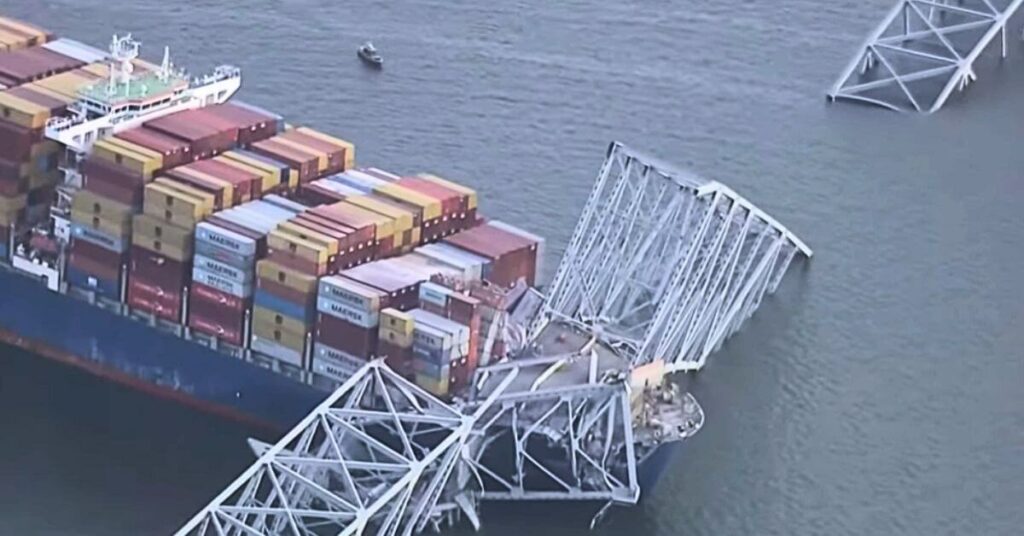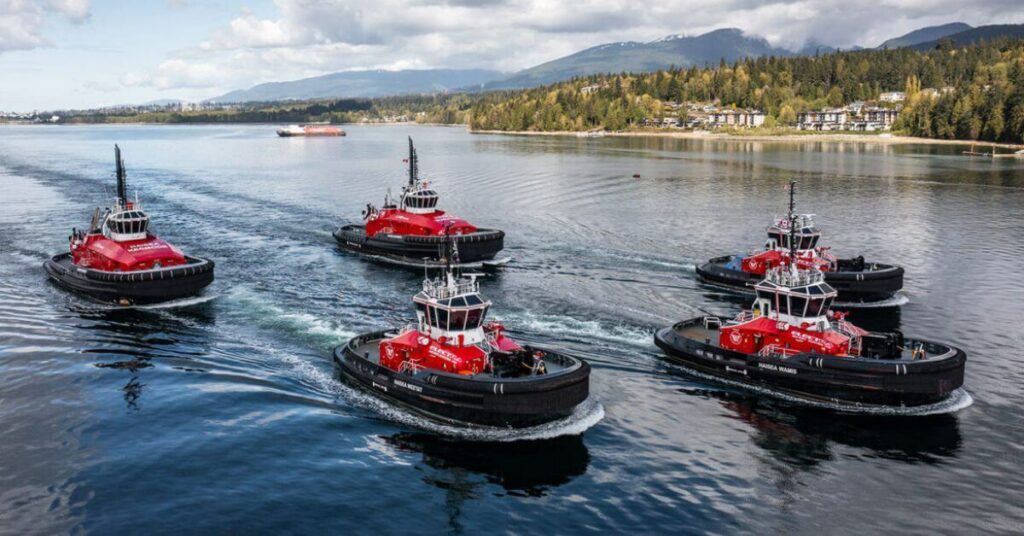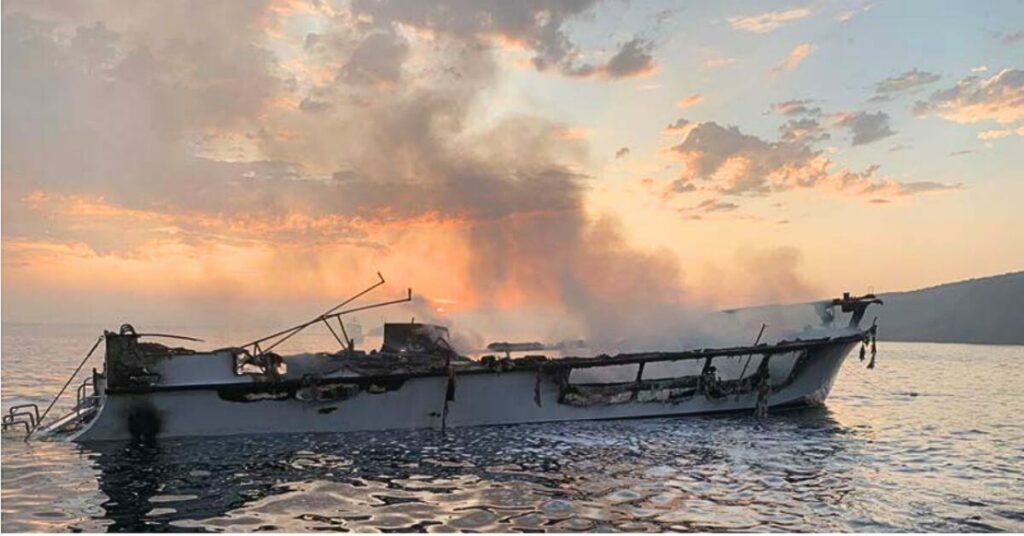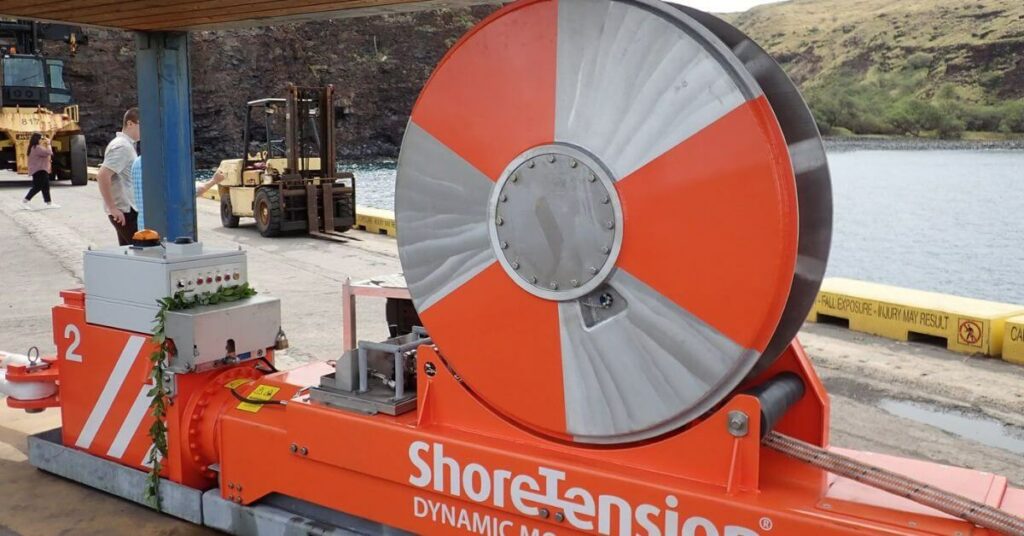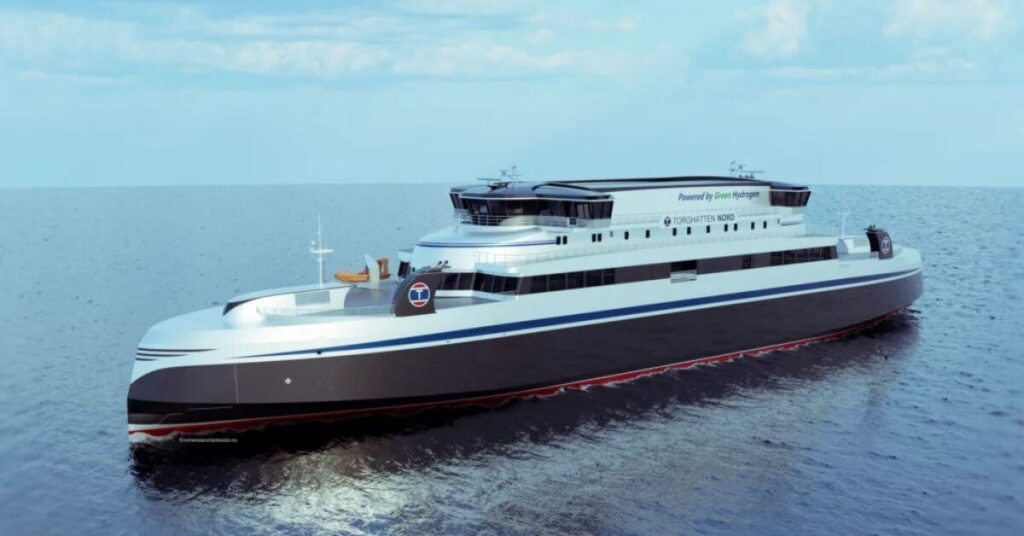Ports Not Yet Equipped To Handle Carbon Dioxide Captured On Ships-Study

A recent groundbreaking study conducted in collaboration with Lloyd’s Register and ARUP on behalf of the Global Centre for Maritime Decarbonization (GCMD) identified inadequate port preparedness as a significant barrier to the broad implementation of Onboard Carbon Capture and Storage systems.
The report highlights the insufficient facilities and protocols at ports for managing captured carbon dioxide (CO₂) as a major barrier.
The study, “Concept Study to Offload Onboard Captured CO₂,” finds that although improved technology is available for offloading CO₂ onboard, there is still uncertainty regarding the operational safety of transferring CO₂ by qualified individuals.
According to the research, the current port infrastructure is incompatible with the higher-quality criteria needed for onboard acquired CO₂ because it was primarily built to handle food-grade CO₂. While a few ports can discharge liquefied CO2 (LCO2), this is not enough to meet the OCCS system’s demands.
The study, which looked at more than ten potential LCO₂ infrastructure projects worldwide, found that many are still at the conceptual stage and awaiting a Final Investment Decision (FID).
The interdependency of port facilities with bigger CO2-emitting industry clusters exacerbates this infrastructure investment delay, creating a catch-22 situation for the carbon value chain.
Introducing LCO₂ offloading is predicted to influence operational performance and efficiency in already complex port operations.
Additional buffer zones are required due to safety concerns regarding handling LCO₂, which exacerbates the space constraints already present at ports and terminals. The nine-month project aims to fill in the gaps in the value chain for onboard carbon collection.
The study proposes four important offloading modalities, including Ship-to-Shore and Ship-to-Ship transfers, and finds that liquefied CO2 is the most effective alternative for onboard storage and transit. Such concepts are essential for increasing offloading capacities and making it easier to use or store captured CO2.
Handling LCO₂ has distinct safety concerns, including threats of asphyxiation and poisoning. Hazard identification and risk analysis were performed to establish mitigation measures and emergency response procedures.
GCMD CEO Professor Lynn Loo highlights the study’s findings about the difficulties associated with OCCS/LCO₂ offloading. LR CEO Nick Brown emphasizes how critical it is to comprehend the operational and safety difficulties associated with emissions reduction solutions. Arup Design Lead Robert Cooke emphasizes the study’s value in helping to create practical marine decarbonization solutions.
Reference: Global Centre for Maritime Decarbonisation
Disclaimer :
The information contained in this website is for general information purposes only. While we endeavour to keep the information up to date and correct, we make no representations or warranties of any kind, express or implied, about the completeness, accuracy, reliability, suitability or availability with respect to the website or the information, products, services, or related graphics contained on the website for any purpose. Any reliance you place on such information is therefore strictly at your own risk.
In no event will we be liable for any loss or damage including without limitation, indirect or consequential loss or damage, or any loss or damage whatsoever arising from loss of data or profits arising out of, or in connection with, the use of this website.
Disclaimer :
The information contained in this website is for general information purposes only. While we endeavour to keep the information up to date and correct, we make no representations or warranties of any kind, express or implied, about the completeness, accuracy, reliability, suitability or availability with respect to the website or the information, products, services, or related graphics contained on the website for any purpose. Any reliance you place on such information is therefore strictly at your own risk.
In no event will we be liable for any loss or damage including without limitation, indirect or consequential loss or damage, or any loss or damage whatsoever arising from loss of data or profits arising out of, or in connection with, the use of this website.
Do you have info to share with us ? Suggest a correction
About Author
Marine Insight News Network is a premier source for up-to-date, comprehensive, and insightful coverage of the maritime industry. Dedicated to offering the latest news, trends, and analyses in shipping, marine technology, regulations, and global maritime affairs, Marine Insight News Network prides itself on delivering accurate, engaging, and relevant information.

About Author
Marine Insight News Network is a premier source for up-to-date, comprehensive, and insightful coverage of the maritime industry. Dedicated to offering the latest news, trends, and analyses in shipping, marine technology, regulations, and global maritime affairs, Marine Insight News Network prides itself on delivering accurate, engaging, and relevant information.
Latest Shipping News Articles You Would Like:
Daily Maritime News, Straight To Your Inbox
Sign Up To Get Daily Newsletters
Join over 60k+ people who read our daily newsletters
By subscribing, you agree to our Privacy Policy and may receive occasional deal communications; you can unsubscribe anytime.




